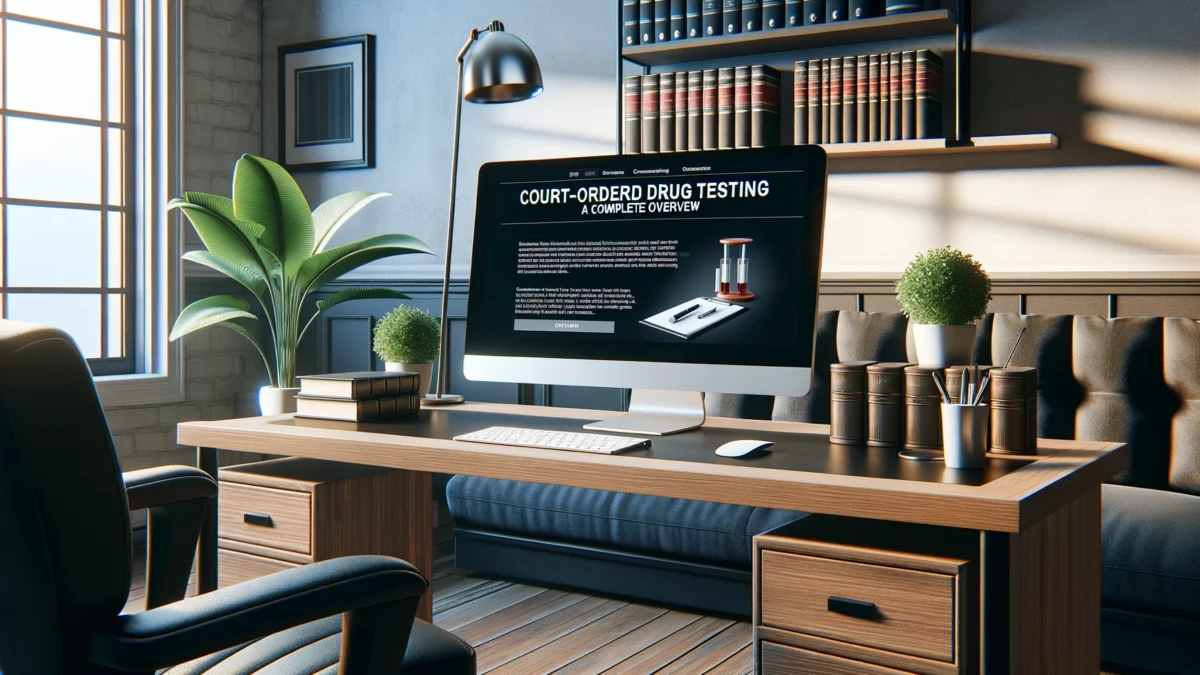When a court orders drug testing, it usually indicates a legal requirement tied to various circumstances such as custody battles, criminal cases, or employment disputes. Understanding the process and knowing how to navigate these requirements is crucial.
This comprehensive guide will help you understand what court-ordered drug testing entails, the procedures involved, and how to find a testing center near you.
What is Court-Ordered Drug Testing?
Court-ordered drug testing is mandated by a judge as part of a legal requirement. This can occur in various scenarios:
- Family Law Cases: Particularly in child custody and divorce cases where substance abuse might affect parental rights.
- Criminal Proceedings: For individuals on probation or involved in drug-related offenses.
- Employment Law: In cases where workplace safety is concerned or if an employee’s substance use is disputed.
The primary goal of these tests is to ensure compliance with the law, maintain safety, and ascertain the welfare of involved parties.
Types of Drug Tests
Different types of drug tests can be administered depending on the court’s order:
- Urine Testing: The most common due to its non-invasiveness and ability to detect recent substance use.
- Hair Follicle Testing: Provides a longer detection window, which can track drug use for up to 90 days.
- Blood Tests: Offers the most accurate detection of current drug levels in the system but is more invasive.
- Saliva Testing: Increasingly popular for its non-invasiveness and immediate results.
The Testing Process
The drug testing process under court orders is typically stringent to ensure accuracy and fairness:
- Notification: Individuals are informed about where and when the test will take place.
- Check-In: Upon arrival at the testing facility, identification is verified, and paperwork is filled out.
- Sample Collection: A sample (urine, hair, blood, or saliva) is collected under strict supervision to prevent tampering.
- Analysis: The sample is analyzed in a lab that adheres to federal and state regulations.
- Reporting Results: Results are sent directly from the lab to the court or the requesting authority to maintain confidentiality and integrity.
Finding a Testing Center Near You
To locate a drug testing facility nearby:
- Online Directories: Websites like SAMHSA’s (Substance Abuse and Mental Health Services Administration) provide a list of certified labs.
- Local Health Departments: They can provide information on where you can get a court-ordered drug test.
- Legal Assistance: Lawyers often have knowledge of and relationships with reputable testing centers.
- Referrals: Sometimes, the court itself will specify where the test should be carried out.
Legal Considerations and Rights
Understanding your rights is crucial when undergoing court-ordered drug testing. These rights include:
- Privacy: The test should be conducted in a manner that respects your privacy.
- Accuracy: You have the right to question and challenge any results that you believe are inaccurate.
- Representation: Consulting with an attorney can help protect your rights and provide guidance throughout the process.
Conclusion
Court-ordered drug testing is a serious matter that can have significant implications for the individuals involved. By understanding the types of tests, the procedures followed, and your rights, you can better navigate this process. If you are subject to such testing, ensure you follow all legal directives and seek legal advice to safeguard your interests and rights.
Navigating court-ordered drug testing can be challenging, but with the right information and resources, you can manage this requirement effectively and ensure compliance with legal obligations.


